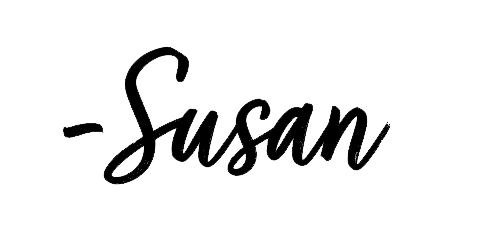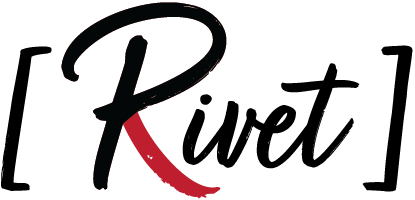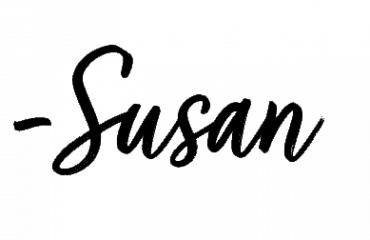Ghosting, COVID-19 and Other Buzzwords
Language is a living, breathing thing. It changes over time. These changes can be neutral, positive or negative, but they are silly more often than not.
When I started my business, a few words made me laugh at the seriousness the person using it employed. After laughing at these new buzzwords, I eventually adopted them. They became part of my lexicon, and ultimately, I didn’t see them as silly anymore.
Here are some of my favorites buzzwords and phrases that I have heard too much lately:
- Pivot– A business uses this term to describe a change in position or market. It only makes me think of running suicides in high-school basketball practice.
- Holistic Approach, Holistically– Big-picture thinking in which a company considers all business units working together to solve a problem.
- Unpack– Breaking down a problem into parts; not getting your clothes out of your suitcase.
- Ping– A quick check-in with someone using a short text message or email.
- Customer Journey– A chronicling of each touchpoint a brand, product or company has on a customer throughout their purchase or engagement process.
- Quick win– Just that. Something a business can do to make money easily and as soon as possible. This is a bad idea if you are a professional.
- Retargeting– Typically used in Marketing, it is the narrowing down of a specific customer group to aim your product, brand or business.
- “You Do You”- Marching to one’s own beat. Whatever the consequences, a person can act or do something that meets their needs and style.
- Does that make sense? Yes, the entire question. I’ve noticed, “Does that makes sense” seems to be used quite frequently, especially after explaining the basics of a project or idea to someone else. I don’t perceive it as negative or demeaning. I believe it simply implies that the other person is making sure I completely understand everything and can get the job done the exact way or better than how they have it pictured in their head. Did I explain that correctly? Does that make sense to you?
Ghosting
Sadly, this term is an action verb employed in the real world too frequently by a growing number of people. Ghosting is not returning phone calls, emails or texts after several conversations with someone about something important. It could also mean that someone doesn’t show up for an important event like they said they would, like a date or a job interview.
Ghosting has happened to me several times in my business. Just recently, I had a lovely conversation with a new author about his book. I took thirty minutes of my unpaid time to listen to his story and goals. Then, he asked me to complete a sample edit, which I did, taking about two hours. He acknowledged he received my work but had a busy weekend ahead. That was two weeks ago, and I haven’t heard from him since.
I am ok with any reason why someone wouldn’t choose me as an editor. But I am not ok with silence. I completely understand if you decide to write a book and then realize the editing process can be expensive and overwhelming after doing your research. I don’t care what your reasons are for not wanting to pursue a book. I have two great nonfiction ideas, but the process would require me to work early mornings and late nights and travel extensively to towns away from my home and family. Honestly, I’d rather play basketball after dinner with my daughter on the driveway.
I avoid ghosting now by applying great advice I recently received: Give the person a response deadline. If they ignore it, move on.
I’m not sure why people are ashamed to follow up and resort to ghosting. Ghosting is a tragic way to behave.
When Words Matter
Not all new words make me laugh. There is nothing funny about our discussions on using words such as sexual harassment, climate change or gender-neutral.
As we know, some words start to become derogatory to marginalized groups. Sometimes, marginalized groups reclaim terms that had racial connotations in the past but use them as prideful symbols today.
Example: COVID-19
The word “COVID-19” became an overnight sensational word last year. My business clients quickly used this word in marketing materials since conferences and meetings were reworked due to the virus.
Unfortunately, at this stage, consistency didn’t exist. In one paragraph, you would see different versions of the word, including “COVID,” “the virus” and “Covid-19” (Thank God my clients are professionals and didn’t use any derogatory terms referring to where they thought the virus originated).
The consistent use of the word COVID-19 was necessary for my clients. Getting terminology wrong leaves readers with the impression that you are unprofessional and do not know how to use appropriate wording. Also, inconsistently applying different terms when talking about the virus would leave the client appearing as if the company was panicking, trying to work out the details of rescheduling meetings.
If you are interested in learning how to address COVID-19 correctly, please see the new guidelines put out by the Associated Press Style Guide here: https://www.prnewsonline.com/ap-style-covid/. It will walk you through when to use coronavirus versus COVID-19, the difference between vaccine, vaccination and immunization, and other interesting terms associated with the pandemic.
Thankfully, other people sift and plow these new words out for me. They figure out how to consistently and adequately write these trendy words, and I simply employ their new rules.
In March 2020, the staff at Merriam-Webster added coronavirus-related words quickly to their dictionary. Their normal process to add new words takes an average of years. You can view these new additions on their website at: https://www.merriam-webster.com/words-at-play/new-dictionary-words-coronavirus-covid-19. Some of these words include super-spreader, patient zero and contact tracing.
Quick Tip: You can add words to the Microsoft Word dictionary as long as they are recognizable in the language you use in spell check. This can be helpful if your organization uses custom terms, such as medical or military jargon, that are often flagged as misspelled when using spell check.
Summary
As an editor, it is essential to stay current with the latest trends in language and language usage. I just signed off on the ciep (Chartered Institute of Editing and Proofreading) conference where I learned new and exciting trends in writing, including inclusive language, maintaining writer’s style and effective short-form writing for LinkedIn.
The key is not to take the language changes too seriously. However, if you write to make money, or it represents your professional image, take time to spot any words that may seem new to you. Then, research the definition and usage of the words or phrases to apply them correctly and consistently.
If you find doing this type of work will take away the time you could be using to make money, how about asking me to do it for you? Using the correct words at appropriate times is what editors like me do for clients. We not only love spotting inconsistencies, but we also work with words every day, so we understand if words are clear, used correctly and consistently and meet the needs of your target market.







